Access to Water: 6,650 people Benefit from Renovated Odda Water Source in Moyale Sub County
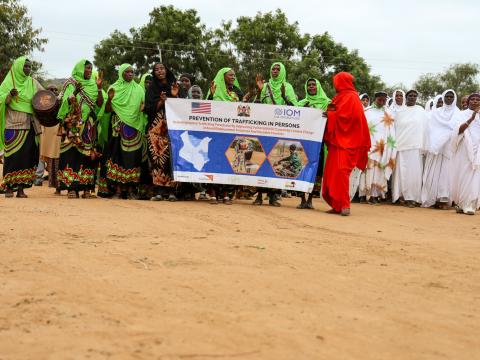
Access to clean and safe water is a basic human right, yet millions worldwide face the harsh realities of water scarcity. This shortage has profound implications, affecting health, education, and economic stability. One important but sometimes disregarded effect of water shortage is that it increases the likelihood of human trafficking.
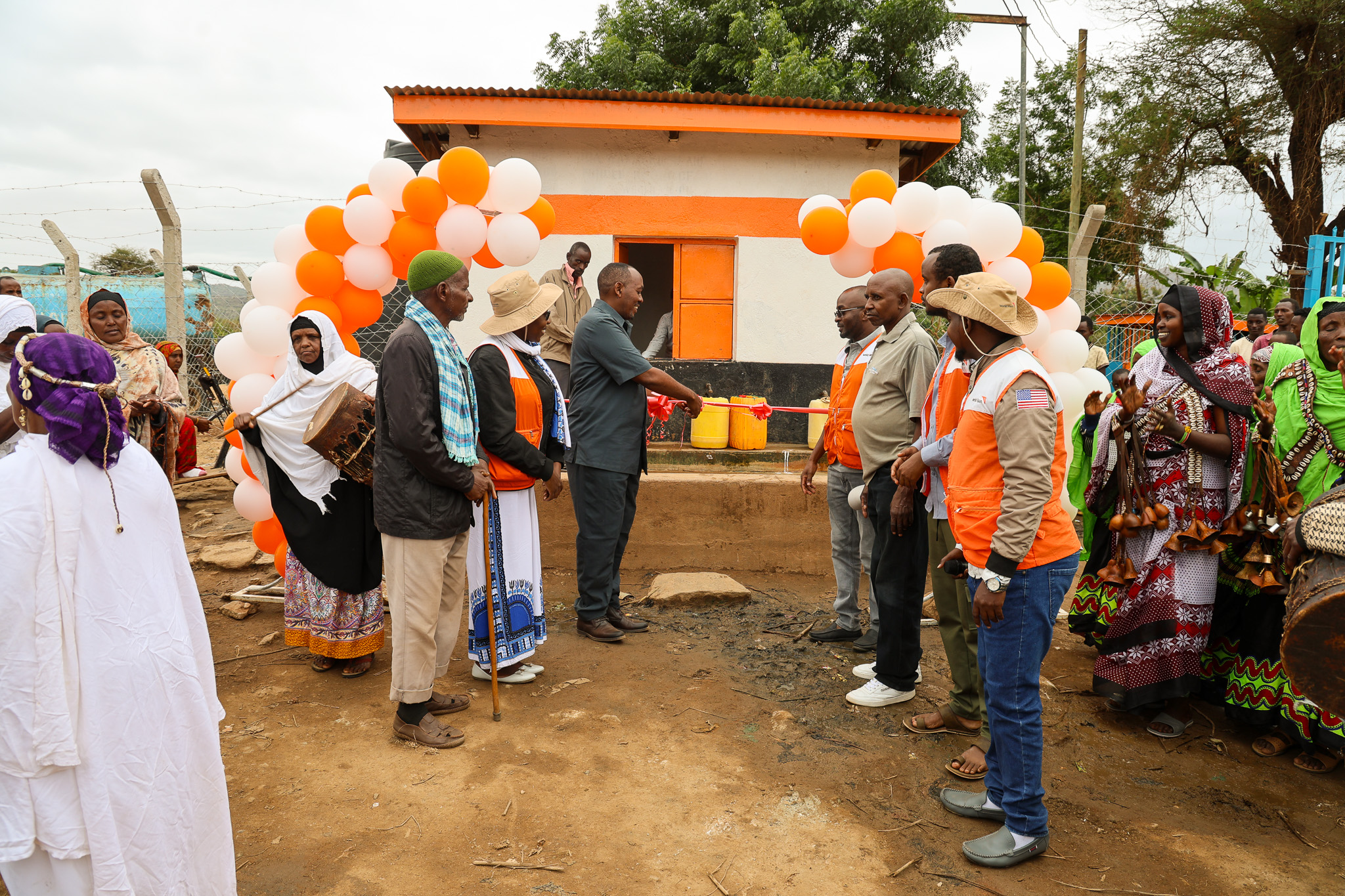
Water scarcity compels community members, especially women and children, to undertake long and often unsafe journeys in search of water. These treks increase their vulnerability to risks such as violence and exploitation. In areas like Odda, where water sources are limited, competition for access often fuels conflicts and power struggles, creating an environment where trafficking and other forms of exploitation thrive.
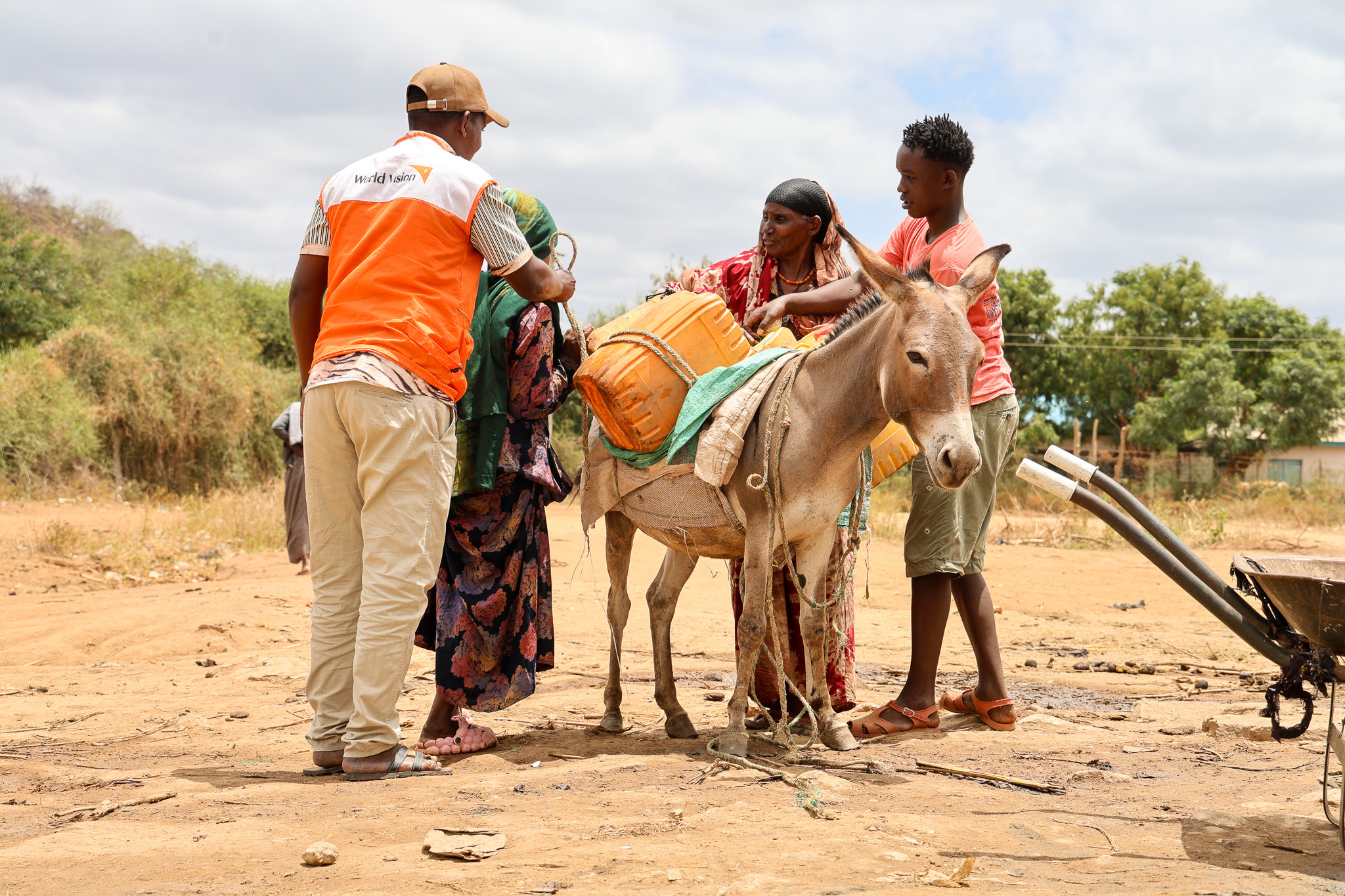
The Odda community in Moyale Sub County faced a severe water crisis when their primary borehole broke down in August 2023. By February 2024, the site was completely abandoned and nonfunctional. . Odda had officially joined the ranks of communities grappling with water scarcity and economic hardship. The significant time and effort spent securing water limited access to education and employment opportunities. This financial strain left families increasingly vulnerable, making them easy targets for traffickers who preyed on their desperation with deceptive promises of a better future.
The situation improved when World Vision Kenya and the International Organization for Migration (IOM) Kenya, funded by The U.S. State Department Trafficking in Persons (JTiP), partnered with Marsabit County's Ministry of Water to renovate the water source. The project now serves 6,650 people (950 families), including two schools - Odda primary and secondary.
The KSh 4.5 million rehabilitation project included installing a solar-powered mechanized system, a new generator, PVC drop pipes, renovating the water kiosk and generator house, water tower, 10,000-litre reservoir tanks, and fencing.
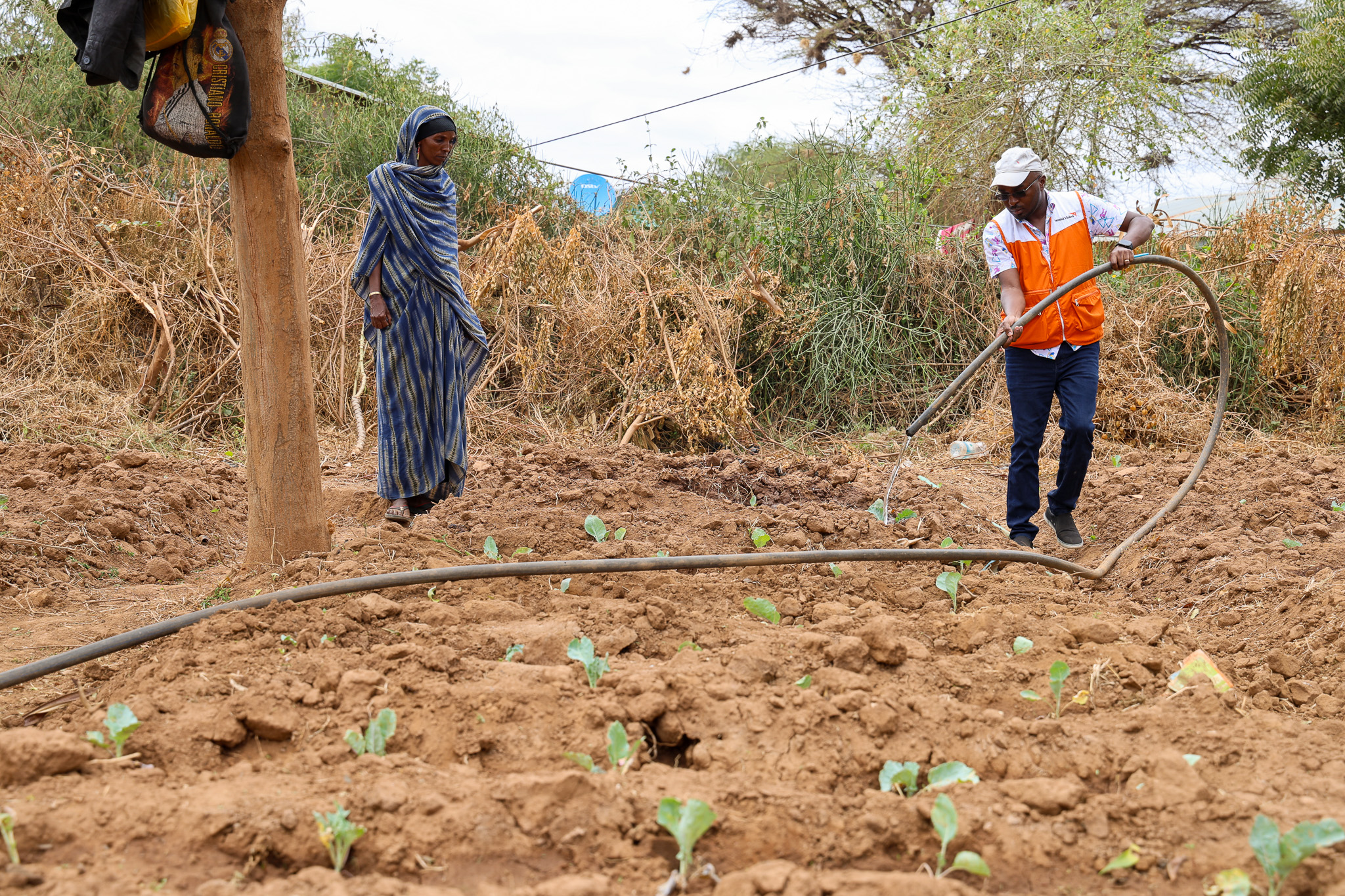
The renovated water source has revitalized the community. Farmers now practice climate-smart agriculture, while residents have reliable access to water for household use, reducing their susceptibility to trafficking in persons
Habiba Kalicha, a member of the Olagara Climate Smart Agriculture Women Group, says, "We can now continue planting various vegetables, tomatoes, and other crops as trained by World Vision." She adds that the community no longer needs to migrate in search of water and livelihoods.
Rahur Mohamud, a Form Four student at Odda Secondary School, appreciates World Vision Kenya's support through student sponsorships and clean water access. Previously, girls missed classes due to long water collection journeys, which exposed them to risks of sexual violence.
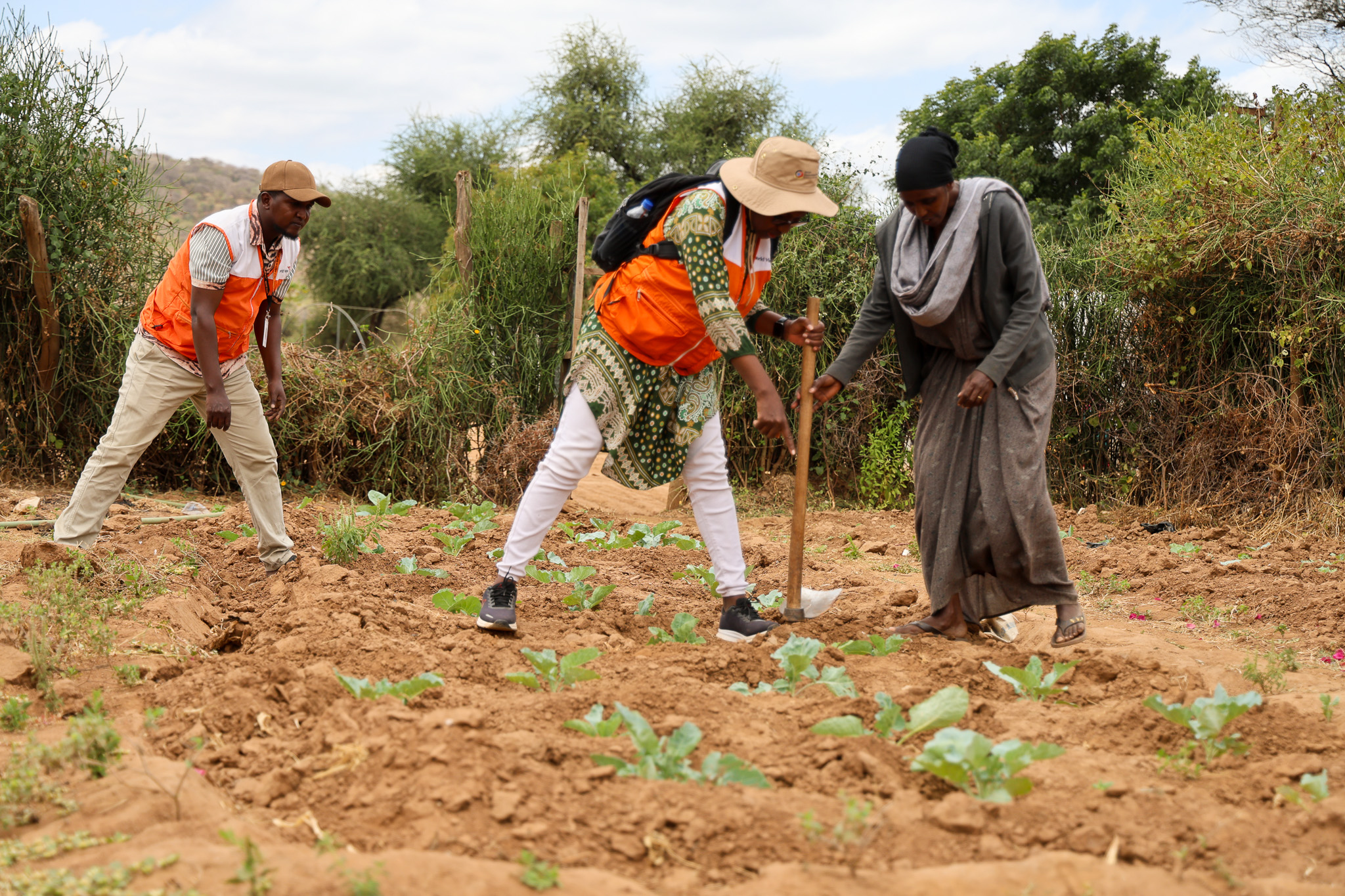
Amina Mohamed, who lives 200 meters from the water kiosk, expresses relief that women no longer need to walk 10 kilometres for water, allowing more time for childcare.
To ensure sustainability, World Vision Kenya trained 15 Water User Committee members and two operators. The community and local government have committed to maintaining the borehole for long-term service.
The project aims to reduce pastoralist migration, improve school attendance, and address water-related vulnerabilities that lead to Trafficking in Persons (TiP). It aligns with SDG 6, demonstrating commitment to sustainable development and community resilience.
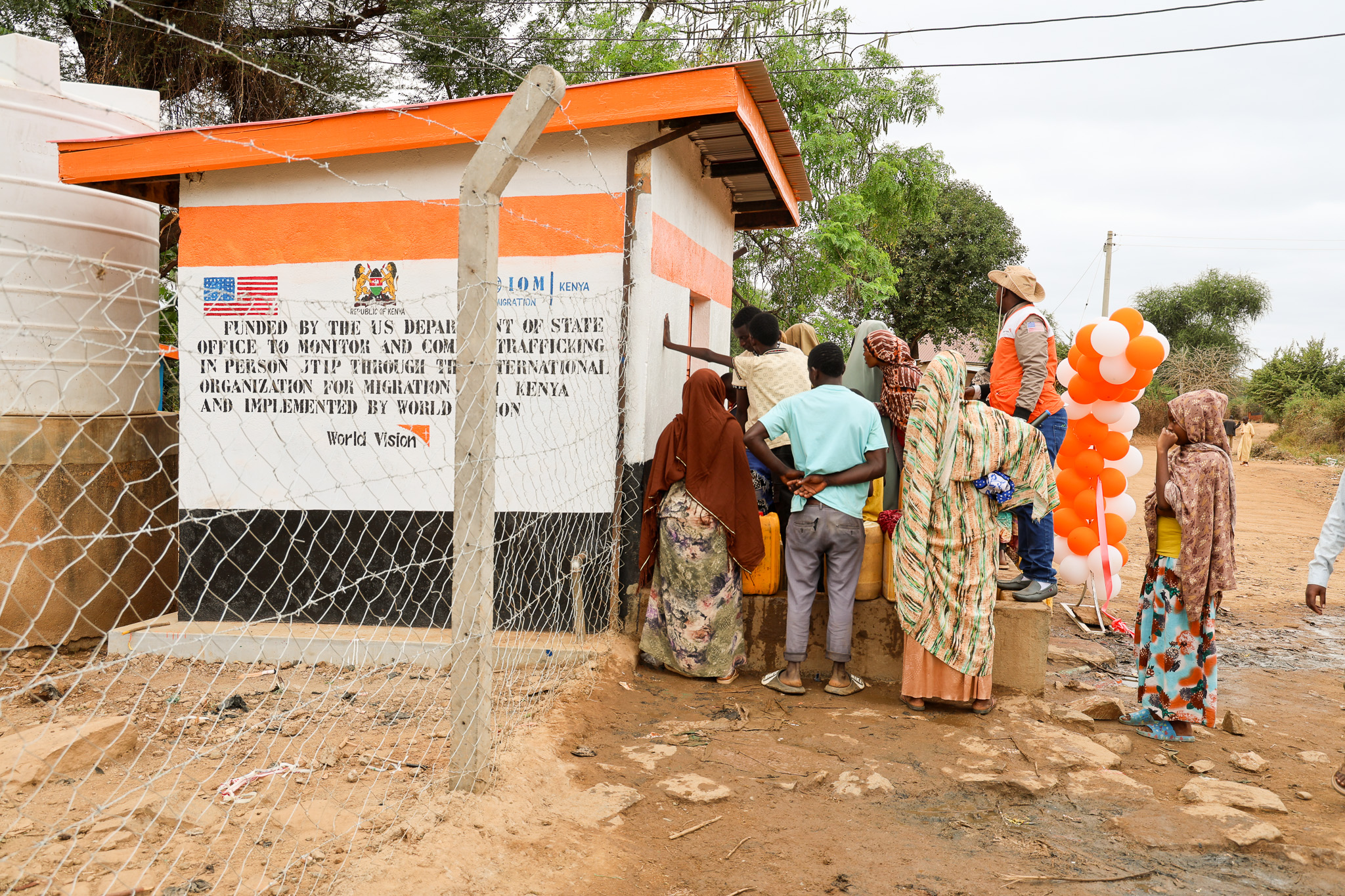
#WaterSecurity #SustainableDevelopment #TiP #PEMS
By Jared Ontobo, Emergency Communications Specialist, World Vision Kenya